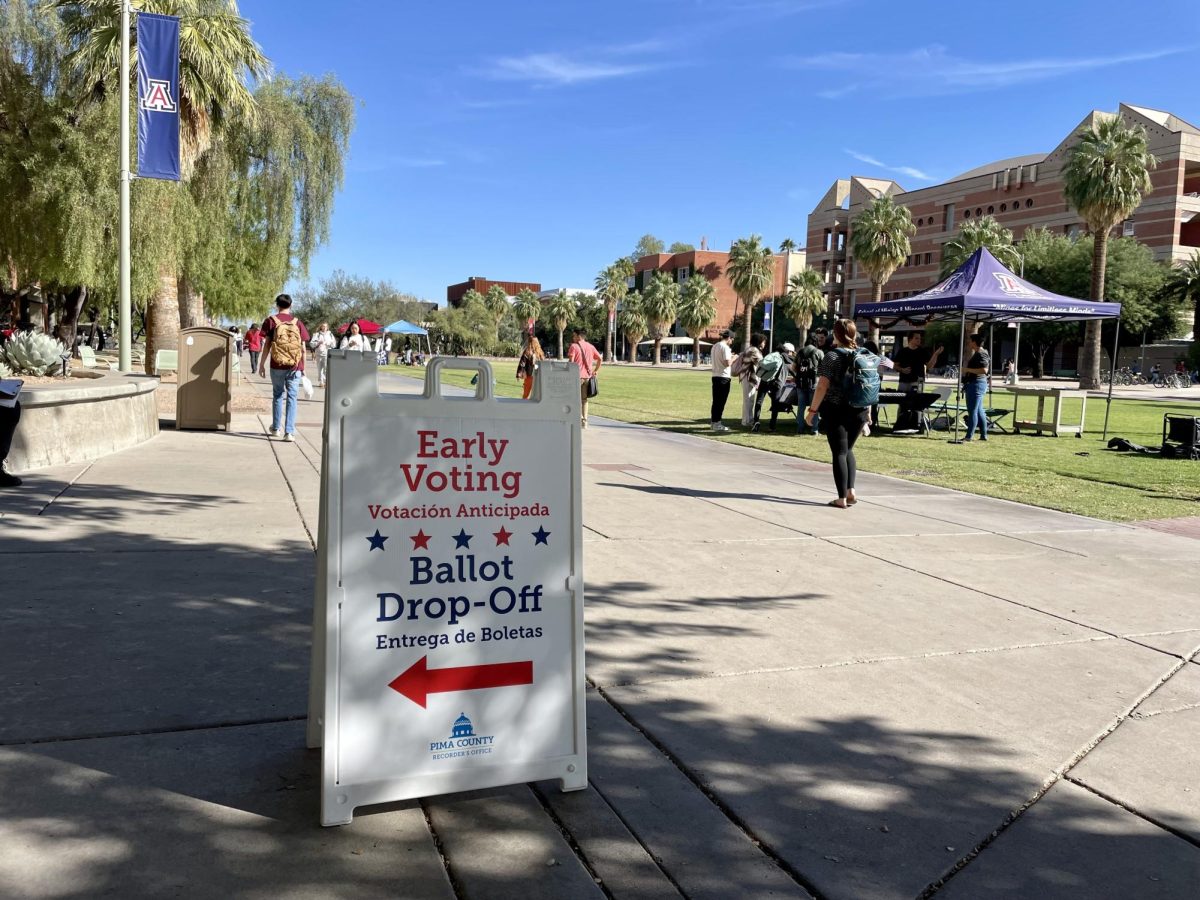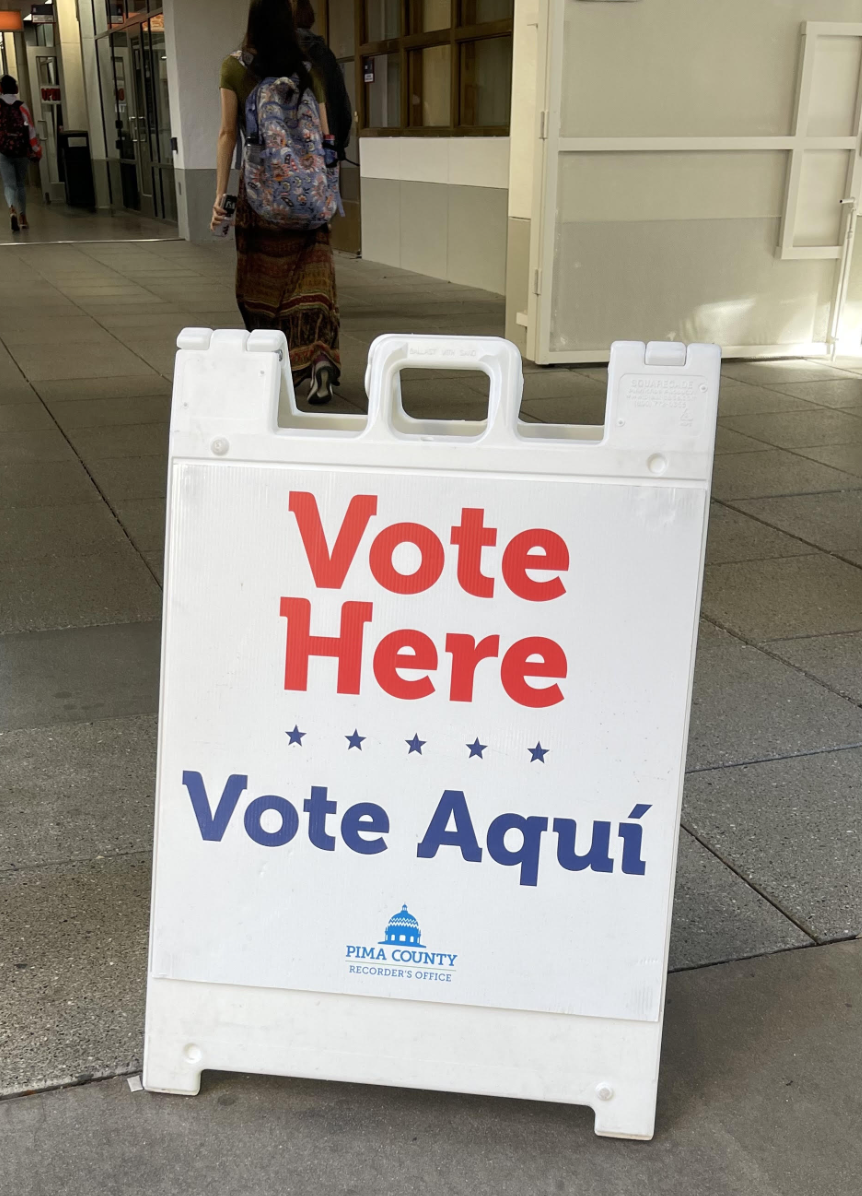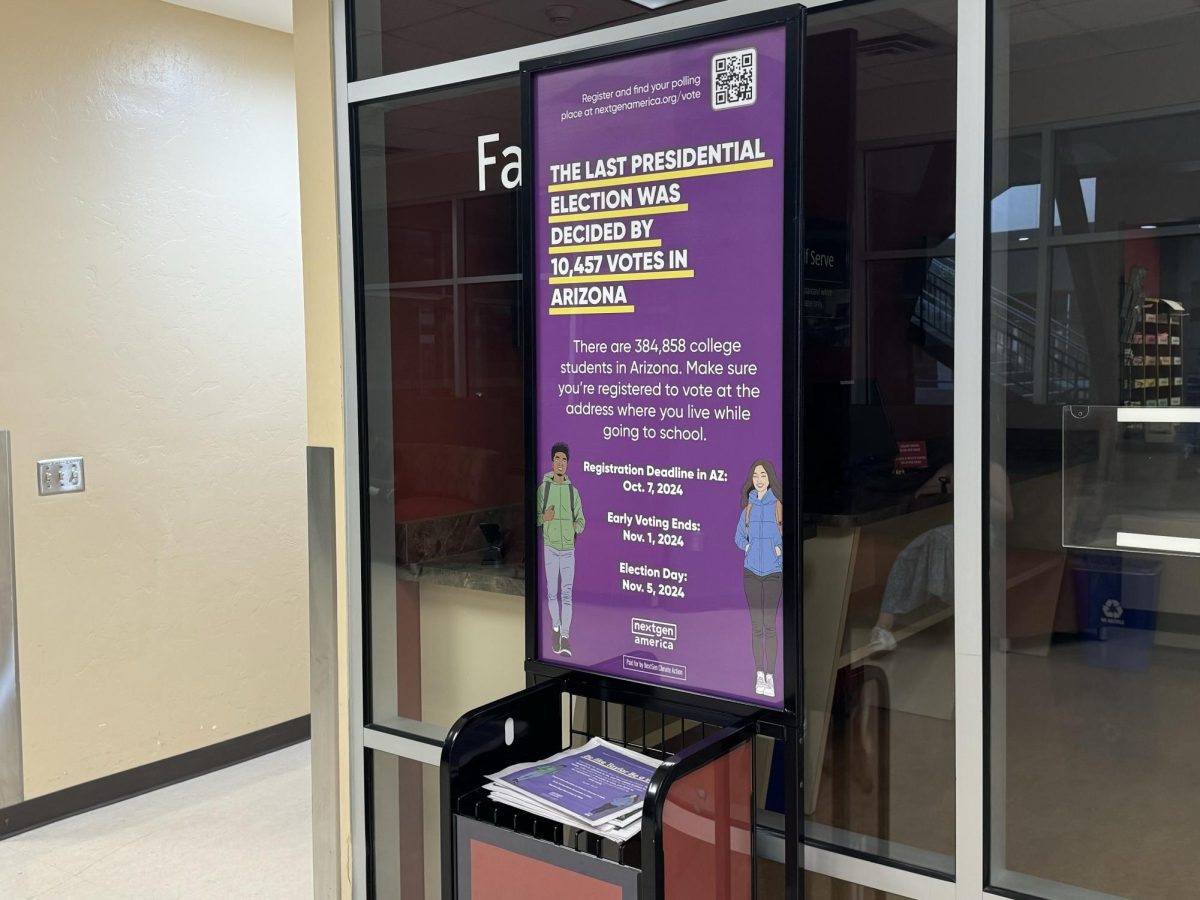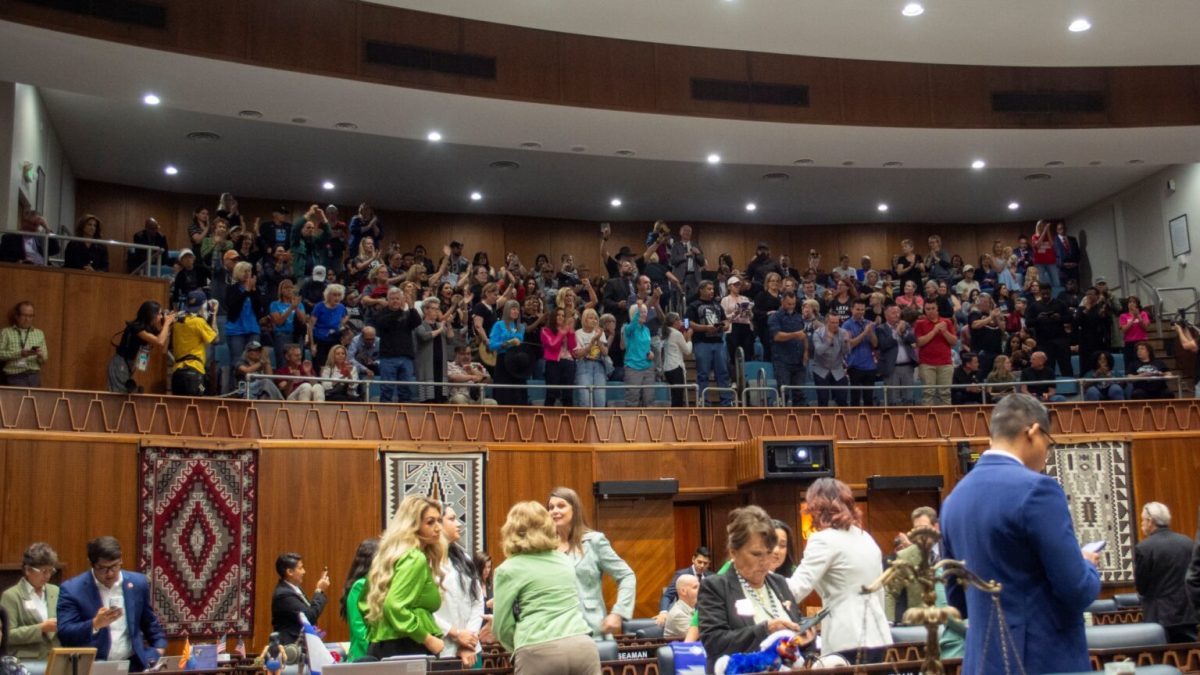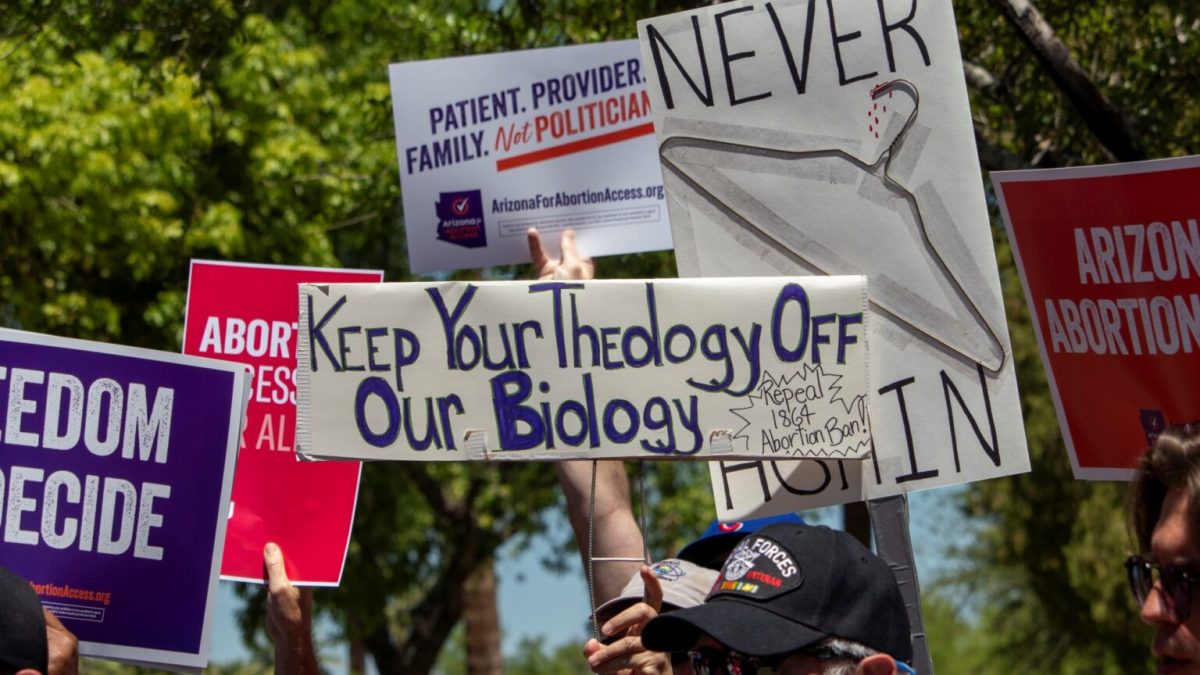As a mother of three, Democratic Rep. Quantá Crews knows the importance of listening to pregnant Black women, and respecting their concerns and choices
When her two sons were old enough to start preschool, Crews decided to step back into the workforce. But less than a month after landing a new job, she found out that she was pregnant with her third son. Embracing the unexpected circumstances, Crews and her husband welcomed the pregnancy — which she described as “pretty OK” compared to her first two.
Even so, Crews said due to complications with the birth, she found herself in intensive care, and her new son in the neonatal intensive care unit.
“I almost lost my life,” she told the Arizona Mirror.
Her experiences going through childbirth and motherhood as a Black woman have colored her work as a lawmaker, especially recently as House Democrats’ efforts to repeal the 1864 abortion ban finally moved forward on April 24 with a vote to approve the measure and send it to the Senate.
As lawmakers debated the matter, Republicans voiced support for the near-total ban on abortions that dates back to 1864, when Arizona was still just a territory of the United States.
In explaining his vote to uphold the abortion ban, Rep. David Marshall, R-Snowflake, who is also Black, spoke about the ways he felt legal abortion disproportionately harms Black women and families.
He quoted a 2011 report written in part and edited by Center for Urban Renewal and Education founder and president Star Parker that attributes the rate at which Black women obtain abortions to abortion being legalized and the prevalence of abortion facilities in marginalized communities.
“Historically, Blacks have been unwitting victims of a hidden racist agenda of those behind abortion and birth control organizations because they believed they were receiving a new civil rights choice,” Marshall read from the report on the House floor on April 24.
He continued to highlight statistics from the report that emphasized the higher abortion rates amongst Black women compared to other races, before concluding his speech with Bible verses.
“I don’t think that our savior is happy at what’s happening right now in this chamber,” he said.
Crews, who voted to strike down the ban, felt the statistics Marshall selected were presented without needed context and grossly minimized the harrowing realities of Black maternal mortality.
“To hear Representative Marshall quote all these statistics about Black women and abortion…and where these facilities are located… you’ve got to talk about why they are located there,” Crews said.
“You can’t talk about Black women, childbirth and abortion without talking about systemic racism, oppression, unequal pay — like, literally not making money like somebody doing the same job next to you would, just because you’re a Black woman…because all those things impact why a Black woman may choose to end a pregnancy,” she said.
According to the U.S. Census Bureau, Black women were paid 64% of what the average white man made in 2021. These financial disparities could contribute to a widespread lack of access to quality health care throughout a mother’s pregnancy and leading up to delivery, where the differences among racial groups become more severe.
With the highest maternal mortality rate of any other group, Black women are three times more likely to die due to pregnancy or birth.
Even among different income and education levels, more Black women die during childbirth than any other group. In 2021, researchers at the University of Colorado Boulder found that a nationwide ban on abortion could lead to a 33% surge in pregnancy-related deaths among Black women, compared to a 21% increase for all women.
Abortion studies have also long lacked necessary context when comparing statistics between racial groups. The Centers for Disease Control and Prevention’s 2020 Abortion Surveillance report addressed various reasons for racial disparities in its findings, including a lack of trust in medical professionals.
“The factors leading to higher abortion rates among certain racial or ethnic minority groups are complex,” the report states.“In addition to disparities in rates of unintended pregnancies, structural factors, including unequal access to quality family planning services, economic inequities, and mistrust of the medical system, can contribute to observed differences.”
Medical mistrust among Black Americans can partially be attributed to centuries of mistreatment at the hands of doctors and in the name of science. J. Marion Sims, who is renowned by some as the “Father of Gynecology,” perfected his technique to repair fistulas — or tears between the birthing canal and the rectum or bladder caused by prolonged pressure during birth — by experimenting on enslaved Black women.
Studies have shown that Black Americans are consistently undertreated for pain, including a 2016 report that found over half of the medical students and residents participating believed that Black people had thicker skin than White people, one of many fallacies that can be associated with racial bias in medical practices.
The realities of systemic racism in hospitals, and its impacts are all too real for Crews, who spent a day-and-a-half in intensive care after the birth of her third son. She credits her doula for saving her life, as Crews said that despite raising concerns with medical providers for a week prior to going into labor, she was not heard.
“They didn’t listen to me when I told them something was wrong, and when I got to the hospital, I had no water (amniotic fluid),” Crews said.
A 2021 survey of Black Women revealed that 92% feel as though their care providers do not listen to them and the concerns they hold, and 98% feel they are treated with less respect than patients from other demographics.
Rep. Rachel Jones, R-Tucson, followed Marshall on the House floor April 24 to defend the lack of exceptions in the 1864 ban, saying that abortions occurring due to rape and incest only account for a small fraction of the procedures, and a large majority of abortions happen out of convenience.
Much like with the comments made by Marshall, Crews said she felt that Jones’ statement was misleading, since rape is considered the most underreported crime. A recent study even found that rape has led to tens of thousands of pregnancies in states with abortion bans.
“Convenience, elective… Those words are very harmful,” Crews said. “It’s easy for someone of privilege to say that someone else is doing something out of convenience. These are people’s lives we’re talking about. If it’s only 2%, I will fight like hell for them. It doesn’t take away the need to have abortion as health care for somebody who needs it.”
This story first appeared in AZ Mirror.



